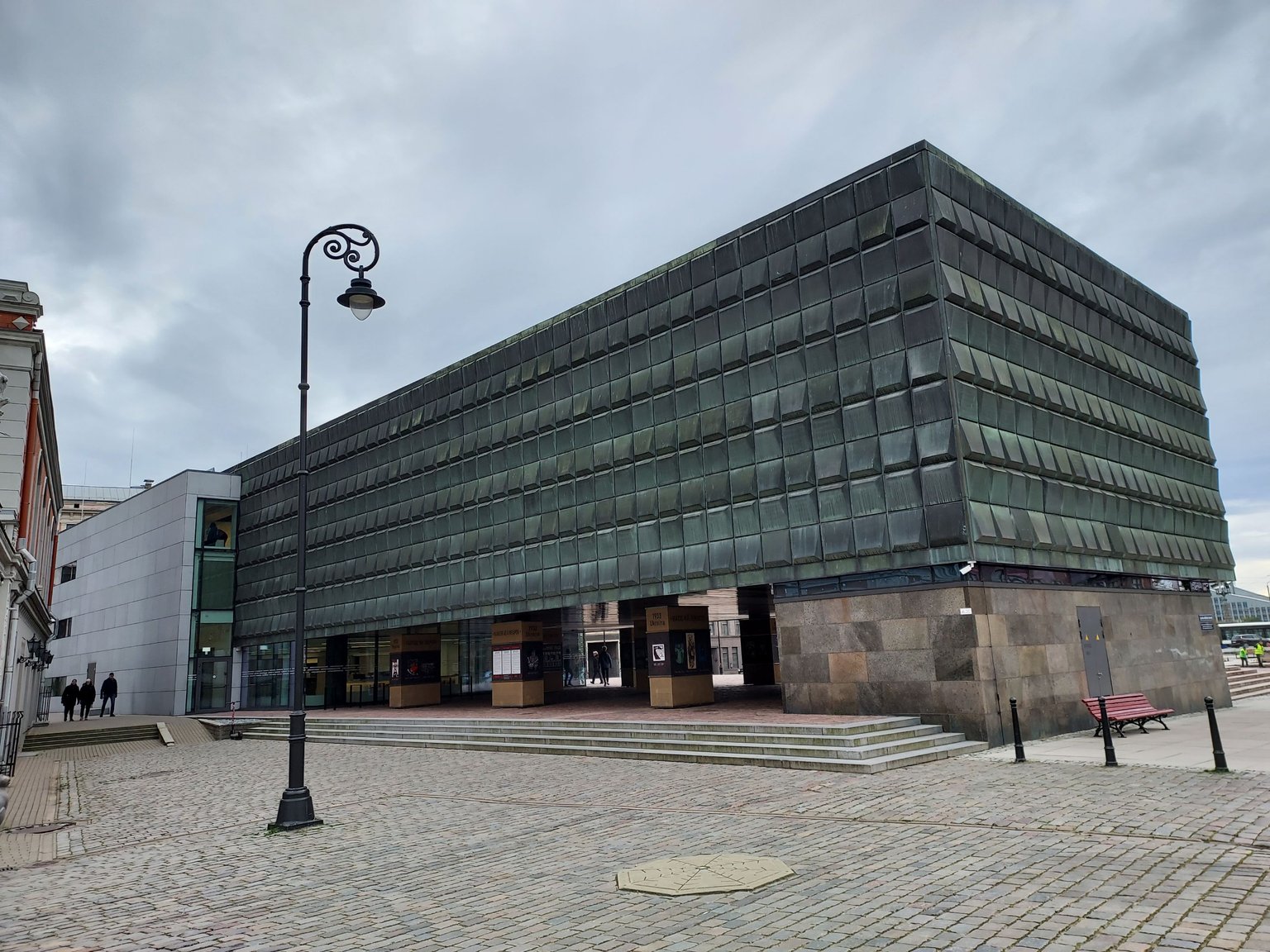
I walked past this rather boring looking building many times when I was in Riga in Latvia, but never took much notice of it. It is located next to the House of the Black House, and I guess when you're neighbours with the most popular tourist landmark in the city, you're probably going to be overlooked by tourists. One afternoon, it was raining and I needed somewhere indoors to kill time. I'm so glad it rained that day as after visiting the PKiN and Warsaw Uprising Monument both in Poland, The Museum of the Occupation of Latvia proved to be another great learning curve for me.
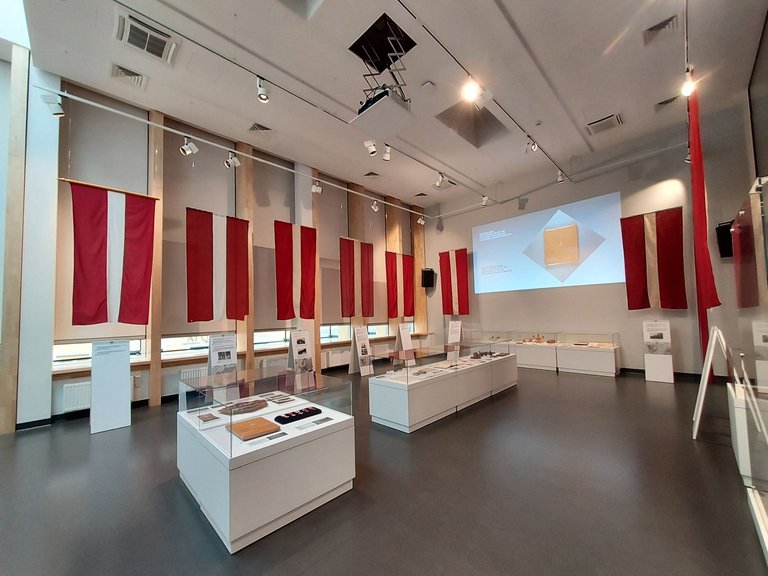
I always used to get the three Baltic countries - Estonia, Latvia and Lithuania mixed up. Without ever having step foot in the Baltic, these countries were very remote to me. Now having visited two of the three countries, albeit only for a few days each, they actually mean something to me. They're not just names anymore. Their existence today shouldn't be taken for granted. Their identity , history and culture could have vanished easily. My visit to the museum makes me realise how vile some people can be, and the importance of resistance and determination. This is the story of the Latvia nation.
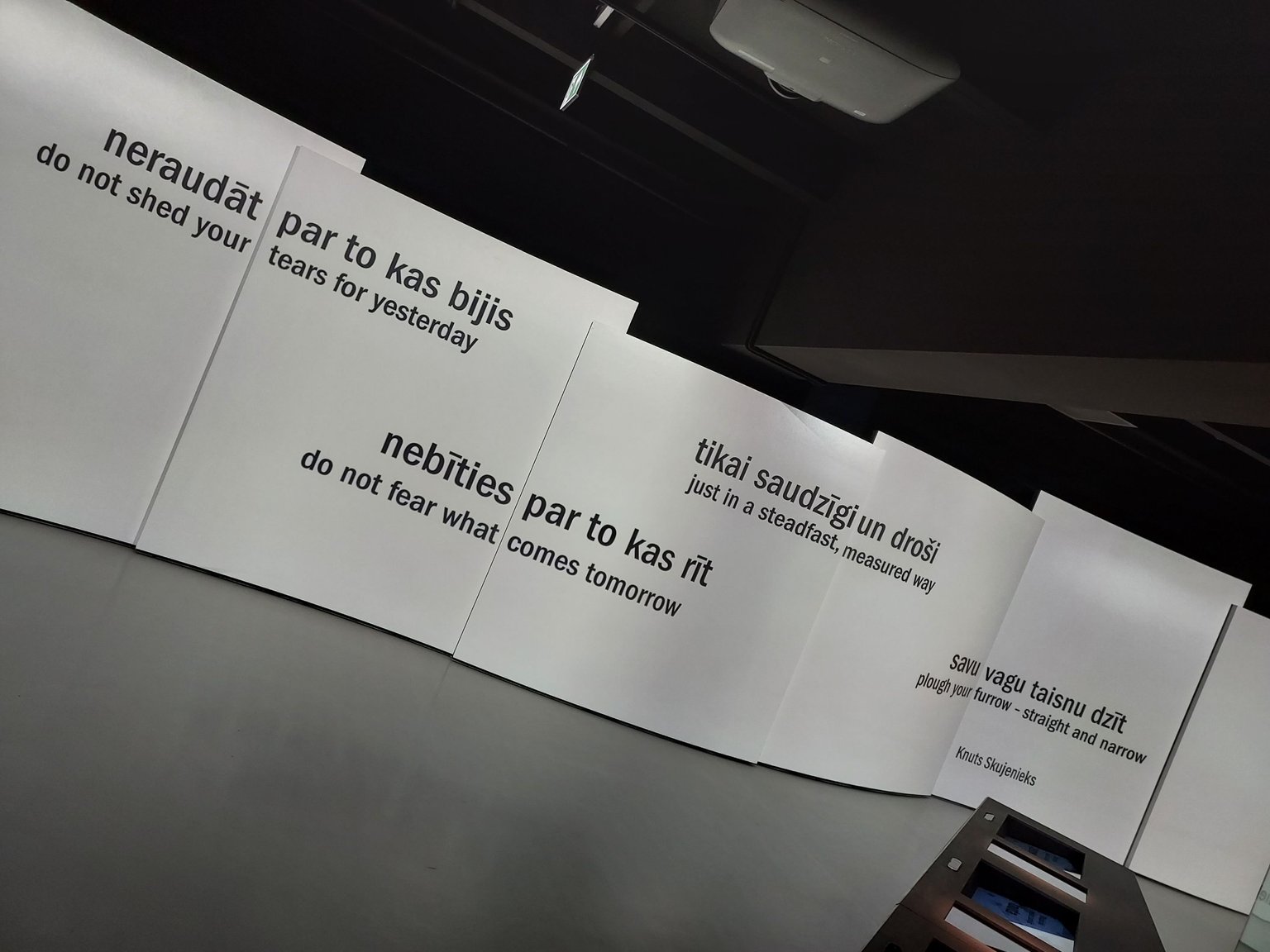
Three occupations
To cut a long story short, in 1939 the Soviets and Nazis made a secret pact to carve up parts of Europe creating their own sphere of influence. Latvia landed in Soviet's sphere. In 1940 the Soviet Union invaded Lativa in an unprovoked manner (does that sound familiar?) and annexed Latvia (again familiar) .... just because it could. Around 35 thousand Latvians were killed or deported. Then the second world war broke out and in 1941 Germany swooped in and claimed Latvia, taking it away from Russia. Over 10 thousand jews were killed by the Nazis. Fast forward 3 years, the Russians came back to recapture Latvia. Nightmare after nightmare, and this one lasted for half a century.
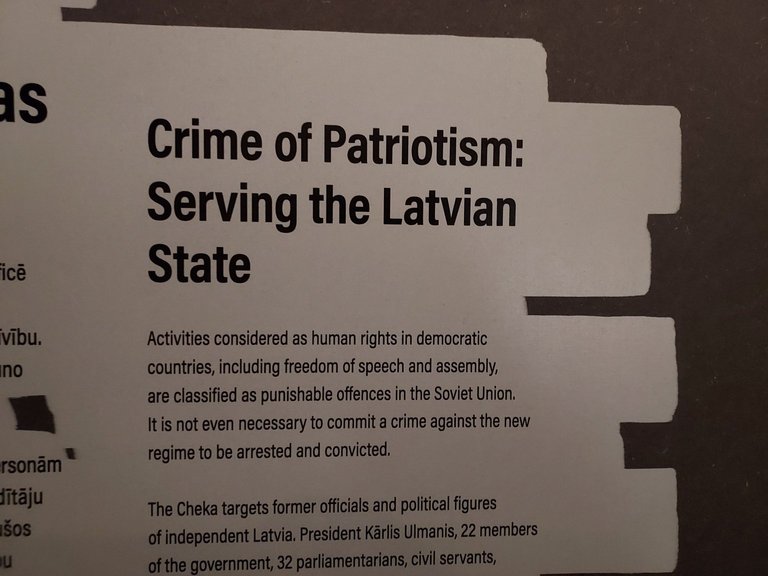
This time the Soviets wanted to suppress and eradicate Latvia, to get rid of their language, culture, ideology, religious, identity. Anything that was related to Latvia. Those who defied were deported to harsh Siberia, and there were over 100 thousand of them.
Normally when I go to museums, I just glance at the displays and quickly move on to the next exhibit. Here, I was totalled engrossed in the exhibits. It was like reading a massive book, walking from page to page, from the first occupation in 1939 to the final independence in 1991. The stories and the exhibits were chilling to read, almost beyond unbelievable. Then you look at modern times and realise these situations are still happening today.
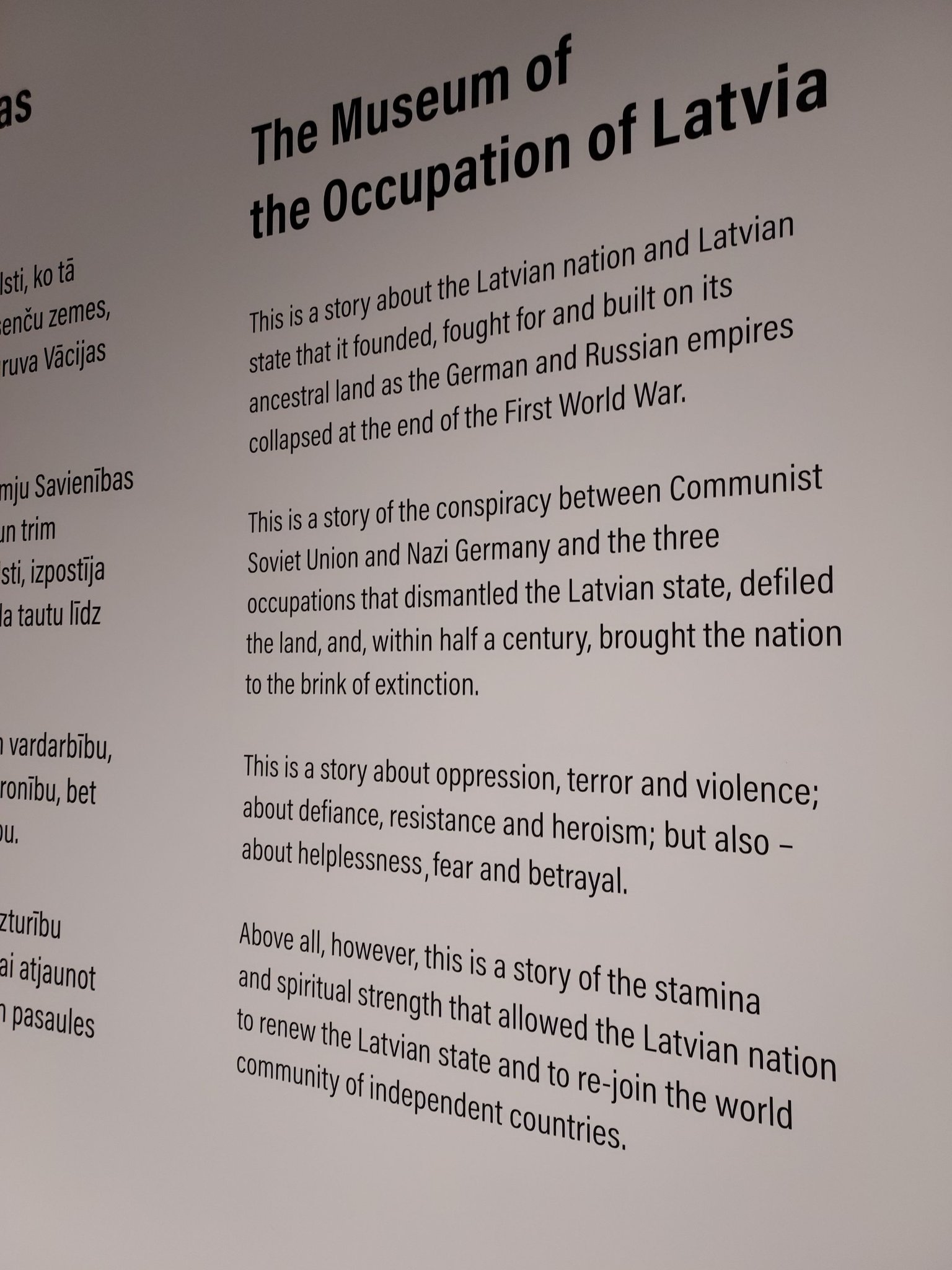
I didn't take many photos inside the museum. Partly because I was too wrapped up in learning about everything, and partly the layout of the exhibits made it quite difficult to take photos.
A National Shrine
On my way out, I passed by an exhibit of the Latvian national flag called A National Shrine. Originally I thought it sounded really boring and was going to give it a miss.
I mean a flag is a flag is a flag, they're all the same, what is there to see? I'm so glad I stopped because behind every flag is a story.

During the second Soviet occupation, two teachers hid this flag in their apartment. In 1996, the tenant occupying the apartment was renovating it. When he demolished a wall, he found the flag wrapped in newspaper dated 1956.This flag was made by Latvian prisoner of wars held in a Swedish POW camp. It was used in the funeral of a Latvian lieutenant when he committed suicide inside the camp in 1945. The pastor gave the flag to the family who took it to Germany and Australia. It has made a full circle back to Latvia after all these years.
Afterthought
Unless you're a history buff, some may find the Museum of the Occupation of Latvia a little dry and boring. That was my first impression. They say never judge a book by its cover, and this couldn't be more true here. This book is truly heartbreaking. It was hard to read, but had to be done.
You can checkout all my travel post on the Pinmapple here or click on Mr Pinmapple below